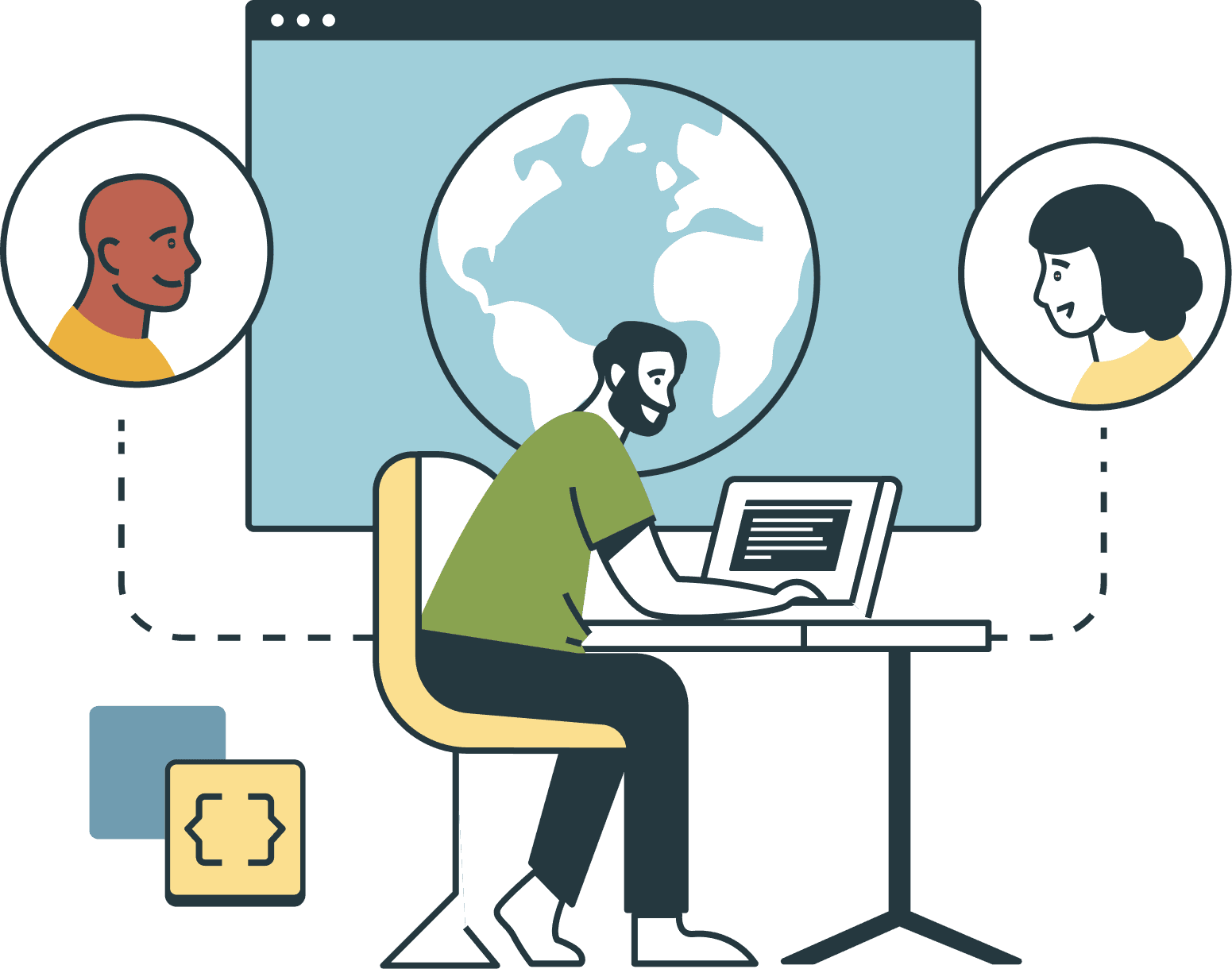
Hiring + recruiting | Blog Post
Top Skills to Look for in Contract Developers
Greg Vilines
Share this post
The competition for top tech talent is fierce. Demand for software developers is growing at a rate of 17%, much faster than average for all occupations. But that doesn’t mean that every developer you meet is the right one for your business.
More and more, companies are turning to contract developers to fill in the gaps and contribute to specialized projects. In fact, 20% of US tech startups hire freelancers because they believe they offer a wider variety of available skills.
However, finding the right developer for your project can be challenging. To help you make an informed decision, here are the top skills to look for in a contract software developer.
Technical Skills
First and foremost, you must ensure that the contract software developer you hire has the necessary technical skills to complete your project successfully. They should be proficient in the programming languages, frameworks, and stacks that are required for your project. This isn’t one-size-fits-all because your specific technology needs will be unique.
Look for evidence of past work that demonstrates their ability to solve complex technical problems using the languages and technologies you need for your project. Some of the best developers are able to easily absorb new skills and technologies. Focusing ONLY on deep experience with the technologies you’re deploying could cause you to ignore highly talented contractors.
Niche Technical Skills
In the face of a rapidly changing tech landscape, contract developers with timely and niche skill sets will stand out. From new languages and frameworks to cutting-edge technologies, there’s always something to learn.
For example, AI skills are in high demand. The percentage of job postings requiring one or more AI skills increased from 0.5% to 1.7% between 2010 and 2024. Contract developers with skills in niches like artificial intelligence, along with other high-demand areas like IoT, cybersecurity, and DevOps, can bring significant value to your organization.
Soft Skills
A good contract software developer should possess a variety of soft skills that set them up to thrive in a remote setting. These skills include the ability to work independently, be self-motivated, and manage their time effectively. They should be able to adapt to your team’s work culture and be flexible enough to work with your team’s schedule.
Clear and Concise Communication
Effective communication is crucial for a contract software developer to be successful in their work. Remote contractors don’t work with teams in person, which means that they will need to rely on clear and regular communication to ensure that everyone is on the same page.
A good contract software developer should be able to explain technical concepts in a way that is easy for others to understand. They should be able to communicate project requirements, progress updates, and any issues or roadblocks that arise in a clear and concise manner. They also need to leverage synchronous and asynchronous communication, depending on your preferred mode of connecting and your relative time zones.
Responsiveness and Active Listening
A contract software developer should be responsive to messages and be willing to provide regular updates on their work. This means answering emails, chat messages, or phone calls promptly and keeping the team in the loop about any changes or updates to the project.
Listening is just as important as speaking. A good contract software developer should be an active listener, taking the time to understand your team’s needs and concerns. They should be able to ask questions to clarify any uncertainties and seek feedback to ensure that their work meets your expectations.
Collaboration Tools
Our current remote work environment offers a variety of collaboration tools available for agile software development. A contract software developer should be familiar with project management tools like Jira or Trello, as well as communication tools like Slack or Zoom. They should be able to use these tools effectively to collaborate with your team and track your project’s progress.
Problem-Solving
Software development demands significant complex problem-solving. Look for contract developers who can think critically and creatively when faced with challenges.
Analytical Thinking
Software developers should be able to analyze complex technical problems and break them down into smaller, more manageable components. This involves identifying the root cause of the problem, determining the best course of action, and implementing an effective solution.
Creativity
Problem-solving goes hand in hand with creativity, requiring developers to think outside the box and come up with creative solutions. A contract software developer should be able to approach problems with an open mind and be willing to explore unconventional solutions.
Troubleshooting
When problems arise, developers should be able to troubleshoot and diagnose the issue quickly. They must know how to use debugging tools and analyze log files to determine the root cause of the problem.
Continuous Learning
Technology is constantly evolving, which means that a strong contract software developer needs to be committed to continuous learning. They must stay up-to-date with the latest developments in their field and be willing to learn new technologies and programming languages as needed.
Time Management
Time management skills are essential for a contract software developer to be effective, especially since they will be working remotely and managing their own schedule. You need a developer who can manage their time effectively to ensure that they meet project deadlines and deliver high-quality code. This involves prioritizing tasks, setting realistic deadlines, and avoiding distractions that could cause delays.
To help with time management, contract developers can use a variety of tools and techniques. Project management tools like Jira or Trello can help them track their progress and manage their tasks effectively. They can use time tracking software like RescueTime or Toggl to monitor their time spent on different tasks and identify areas where they can improve their efficiency, as well as time blocking techniques to schedule specific times for focused work and minimize distractions.
Adaptability
Technology is constantly evolving, and your project requirements may change over time. Look for a contract software developer who is able to adapt to changing requirements and technologies. They should be able to learn new concepts and tools quickly and be willing to incorporate innovative ideas and feedback into their work.
Attention to Detail
Solving technical problems requires a keen eye for detail. A contract software developer should be able to identify small details that could cause problems down the road and ensure that their code is error-free. That’s because even small mistakes can have a big impact on the quality of the final product. You need a contractor who is aware of this and is committed to delivering a high-quality product.
Conclusion
Hiring a contract software developer can be a great way to bring in additional expertise and talent for your project. However, it’s important to ensure that you hire someone with the right skills for the job. Look for a developer who has strong technical skills and soft skills. By doing so, you will be setting yourself up for a successful project and a positive working relationship with your contract developer.
Terminal offers both full-time and contract developers for your hiring needs. View our talent for free or get in touch to learn more!
FAQ
What are the main skills to look for in a contract developer?
When you’re hiring contract developers, look for strong technical skills, including knowledge of cutting-edge technologies like AI and blockchain. You should also look for soft skills, such as strong communication, problem-solving, and adaptability.
What’s the difference between contract developers and full-time developers?
Contract developers aren’t in-house employees. They work with you on a flexible basis, offering niche skills and filling in the gaps as needed. Full-time developers are in-house employees who work exclusively with you for the long term.
What are the benefits of hiring contract developers?
Hiring contract developers offers numerous benefits, including flexibility, access to niche skills, risk mitigation, and accelerated hiring time.
Does Terminal facilitate contract-to-hire?
Yes, Terminal not only facilitates but also encourages contract to hire. This model allows you to try out developers to find the right fit before committing to full-time hires. Plus, enjoy a 14-day risk-free guarantee. If you choose to end an engagement with a contractor within the first 14 days, you won’t incur any costs.


